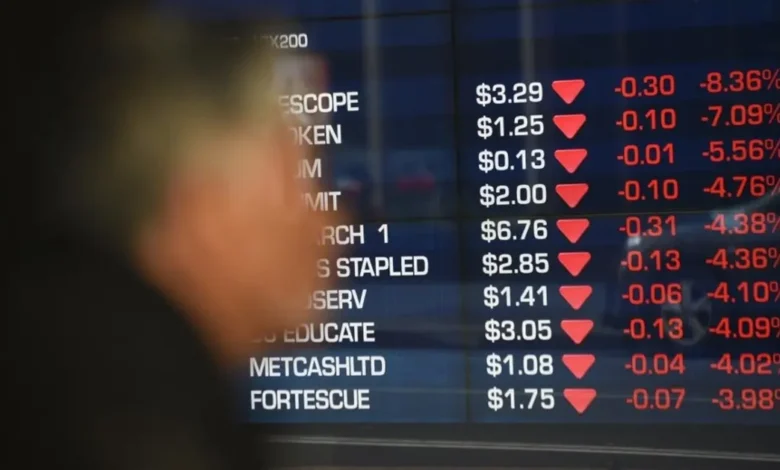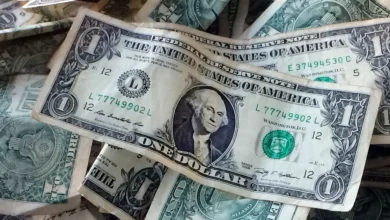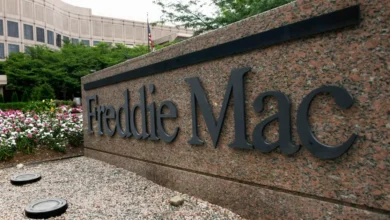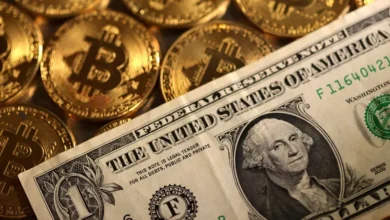Stocks rise, dollar loses safe-haven allure as China sentiment improves

Global shares rose on Monday, lifted by a growing expectation that the Federal Reserve will not raise interest rates anymore, and by hopes that China’s steady drip feed of policy stimulus might stabilize the economy.
A holiday in the United States made for thin trading ahead of key readings on US services and Chinese trade and inflation later in the week.
More policy action is also expected from Beijing, including relaxing restrictions on home buying.
There was relief that embattled property developer Country Garden won approval from its creditors to extend payments for an onshore private bond.
“Chinese newspapers reported a jump in real estate transactions in Beijing and Shanghai over the weekend after the cuts to mortgage rates and downpayment ratios,” wrote analysts RBC Capital Markets.
“Whether this bounce will continue remains to be seen, but it has given China equities a shot in the arm.”
MSCI’s broadest index of Asia-Pacific shares outside Japan added 1.1 percent, having climbed 2.3 percent last week, thanks in large part to a 1.3 percent rise in Chinese blue chips.
The MSCI All-World index, which last week staged its strongest weekly rally since mid-July, was up 0.2 percent, while the dollar was around 0.1 percent lower on the day.
Investor sentiment in the tech sector will be tested this week by the initial public offering for chip giant Arm Holdings, which is aiming for a price in the range of $47 to $51 valuing the company between $50 billion and $54 billion.
S&P 500 futures and Nasdaq futures both edged up 0.1 percent, while stocks in Europe opened on a strong footing. The STOXX 600 rose 0.6 percent in early trading, led by gains in drugmaker Novo Nordisk, which last week briefly overtook French luxury group LVMH as Europe’s most valuable company, and Dutch chipmaker ASML.
Payroll boost
Stocks rose on Friday after August’s US payrolls report hardened expectations for an end to rate hikes. While the headline jobs number topped forecasts, downward revisions to the previous two months and a dip in wage growth pointed to a loosening in the labor market.
The jobless rate also jumped as more people went looking for work, leaving the vacancies to unemployed ratio at its lowest since September 2021.
“The soft-landing crowd will be pleased that the labor market is softening without much stress at the moment,” Deutsche Bank strategist Jim Reid.
“However, the hard-landing argument must be buoyed by the huge downward momentum in recent months and revisions in payrolls. Any path to a hard landing, outside of a shock, has to go via signs of a soft landing first,” he said.
Futures now imply a 93 percent chance of rates staying unchanged this month and a 67 percent probability that the entire tightening cycle is over.
At least seven Federal Reserve officials are due to speak this week ahead of the next policy meeting on Sept. 19-20.
Central banks in Canada and Australia hold their own meetings this week and both are expected to hold rates steady.
The head of the European Central Bank, Christine Lagarde, is speaking later on Monday, with the market now leaning against a hike at its September meeting after a run of soft data.
The relative outperformance of the US economy underpinned the dollar at 146.17 yen, not far from its recent 10-month peak of 147.37. The euro rose 0.2 percent to $1.07915 but was still just a whisker from its recent low and major support at $1.0765.
In commodities, gold benefited from the diminished risk of a US rate rise to stand at $1,944 an ounce.
Oil prices were near seven-month highs on tightening supply as Saudi Arabia was widely expected to extend a voluntary 1 million barrel per day oil production cut into October.
Brent crude futures were steady on the day at $88.50 a barrel, while US futures were also flat at $85.55.










